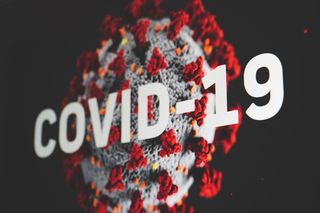Corona and food: high demand, struggling supplies, reduced controls
Next to the health sector, the food and agriculture system has been deemed critical during the pandemic. Anything had to be done to keep food supply chains up and running. Where remote working was not an option and where people usually work in close physical proximity (e.g. at packing stations), companies had to introduce additional shifts to implement the required safety distance measures and protect the health of their workers. If food chains were interrupted, alternative suppliers had to be found quickly, leaving little time to check on their integrity before the start of product transactions. In order to reduce administrative burdens and the spread of the virus at the same time, authorities temporarily suspended food controls, inspections and sampling – for conventional, as well as organic products. High pressure, high financial gains, and less checks – an ideal scenario for fraudsters to thrive, to sell less valuable products for a higher price, to substitute, to mislabel, to dilute, to deceive – with little chances of being caught.
Coronavirus boosts organic consumption at the cost of organic integrity
According to the OTA, organic produce sales in the US were up more than 20 percent in the spring of 2020. With people having to stay at home, cooking for themselves and worrying about health issues, organic consumption has picked up around the globe – and most of the demand is being met. The question that lurks behind: How is this possible? Where does all that extra organic supply come from in the middle of a global crisis? It seems evident that now more than ever, organic integrity is being undermined by fraudsters who are taking advantage of the pandemic, during which they can hardly be uncovered – especially since food is perishable and can be long sold and consumed before irregularities are detected.
We need to know our production capacities to detect fraud effectively
The pressure on food and especially on organic supply chains combined with the lack of surveillance opens up many doors for fraudsters. Unfortunately, neither in Europe nor in the United States are we prepared to deal with this, since we do not oblige certification bodies to provide information on organically certified acreage that would allow us to estimate organic production capacities. As long as we don’t know how much food can be produced organically, we cannot detect whether produced vs. sold organic quantities match or not, and hence we cannot detect fraud efficiently and quickly enough. Cloud-based online platforms like Check Organic can check the plausibility of produced vs. sold organic quantities by calculating the mass balance for organic products. Utilizing the information uploaded by the supply chain parties, real-time certification and product transaction data allow to display each operators’ certification status and the products’ integrity status via an intuitive traffic light system.
New ways to prevent fraud are required to maintain consumer trust in the organic brand
Now that Corona has opened up so many more loopholes for fraudsters, the lack of insight into what is happening along organic supply chains is more worrying than ever. In view of the crisis and increased customer demand, the industry must not gamble away consumer confidence through more scandals. Additional measures must be taken to enhance integrity and protect the reputation of the organic brand. At least in the US, signs are positive that authorities will soon require certifiers to document and publish organic acreage and yields. This would be an important basis for further fraud prevention and should be implemented by all countries dealing with organics, especially for commodities which are specifically vulnerable to fraud, such as grains or legumes. New ways to prevent fraud and increase transparency are well overdue.


